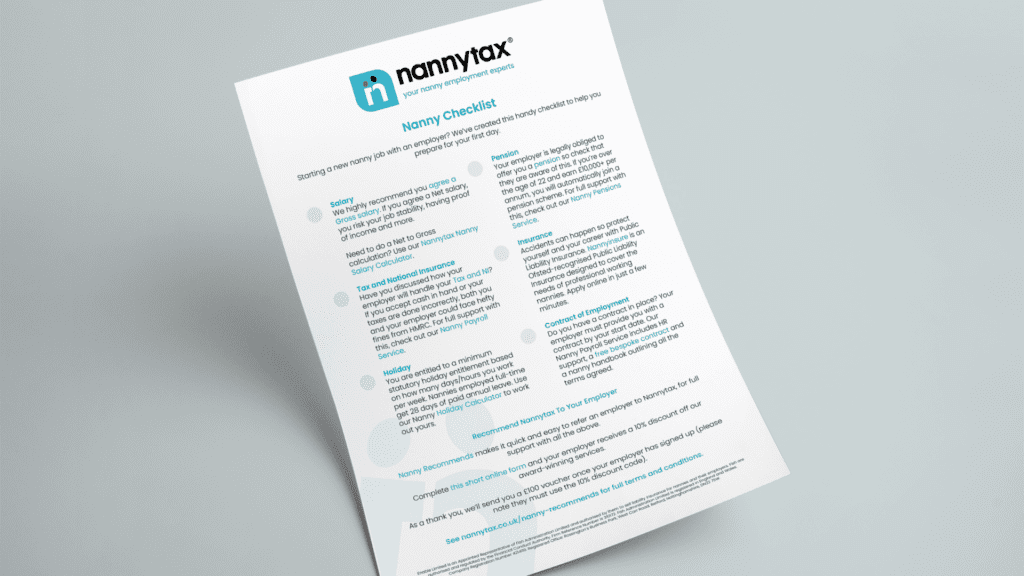
The Ultimate Guide to Self-Employed and Employed Nannies

There are many different types of nannies, but one key distinction is being an employed nanny and being a self-employed nanny; the main difference between the two lies in the employment relationship and tax obligations.
Let’s take a deep dive into the world of employed and self-employed nannies…
What is the difference between the two?
Employed nannies
- Are employed by a family to provide childcare services
- Typically work under contract and are told what to do and where to carry out their work, such as in the family home
- Are paid by the hour, week, or month
- Are offered overtime, perks, and bonuses
Self-employed nannies
- Work as independent contractors, typically for several families on a freelance basis.
- Choose who they work for, their own hours, and hourly rates
- Are responsible for reporting their earnings to HMRC and making their own tax and national insurance contributions
Find the latest nanny salaries in your area here.
Can a nanny be self-employed?
Self-employment isn’t the norm in the nanny industry because nannies work within their employer’s home and their work revolves around the needs of one family. When it comes to becoming a self-employed nanny, HMRC might consider granting you self-employment status if you work a series of temporary positions or if you work with three (or more) families.
Please note, you will need to get written confirmation of your self-employment status from HMRC before you start working
Can a self-employed nanny be Ofsted registered?
As a nanny, you can choose to register with Ofsted voluntarily.
Registering with Ofsted means that your employers may benefit from help with childcare costs.
What are the advantages of being a self-employed nanny?
One advantage is the flexibility. When you are self-employed you are able to set your own working hours, making it easier to plan your life around work. As well as being able to set your own hours, you also have the freedom to choose the families you work with.
What are the disadvantages of being a self-employed nanny?
When you are a self-employed nanny, the family you nanny for may easily terminate your employment, and with self-employed status, you will not have any protection if this happens. You are also not entitled to any employment rights, such as holiday pay, sick pay, or maternity pay, and you may find that your income fluctuates depending on how many families you nanny for and the hours you work month to month.
What are the benefits of employment?
Employment offers certain protections and reassurances that self-employment can’t because there are rules and regulations in place around employment in the UK. An example of this is your employment contract. Employment contracts are a legal requirement which provides legal protection and clarity regarding your rights and obligations as an employee. Additionally, when you are employed you are entitled to a range of rights, such as being paid in line with National Minimum Wage, holiday pay, sick pay, and maternity pay.
What are the risks for families who hire self-employed nannies?
Self-employment status doesn’t automatically transfer between jobs, and this is where employers can get caught out.
The employer is responsible for requesting written confirmation of the nanny’s self-employment status from HMRC. If you hire a self-employed nanny without carrying out the correct checks to confirm your nanny’s self-employment status, and it later comes to light that they have not been granted this status, you could face serious repercussions, such as liability for all unpaid tax.
At Nannytax we mostly advise against nannies taking the self-employment route due to the potential risks involved for both parties. If you wish to hire a self-employed nanny, we strongly recommend seeking professional guidance and advice from HMRC.
Nannytax and Employment
We offer a fully comprehensive nanny payroll & HR service and our award-winning team is on hand 7 days a week to support you throughout the employment of your nanny.



